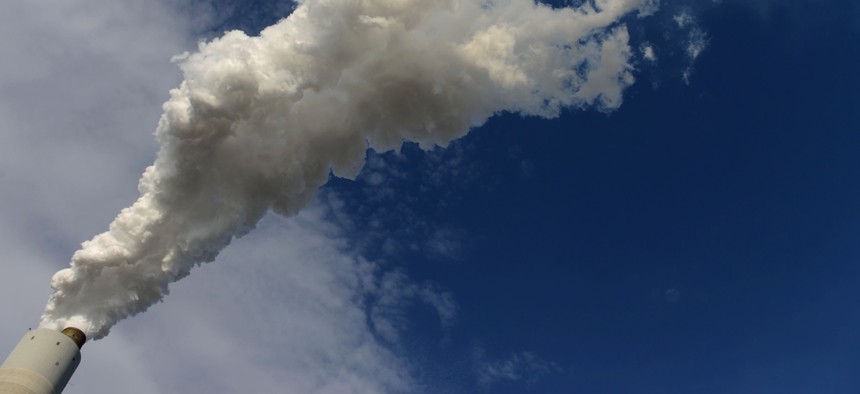Pennsylvania Sees Economic Opportunity in Clean Power Plan

A coal-fired power plant in Pennsylvania. A. L. Spangler / Shutterstock.com

Connecting state and local government leaders
Republican legislators want to curb the power of Gov. Tom Wolf’s administration to implement the plan.
The Obama administration’s Clean Power Plan is something of a Rorschach test for state governments. Twenty-seven of them are suing the federal government, accusing the Environmental Protection Agency of overreaching its regulatory authority. But others, including coal-friendly Pennsylvania, see the law as potentially creating opportunities to build more diverse and durable energy sectors.
At least that’s how the administration of Pennsylvania Gov. Tom Wolf, a Democrat, sees the Clean Power Plan , which aims to reduce carbon emissions nationwide by more than 30 percent by 2030. But Republican legislators have been working to amend the state’s fiscal code in a way that could undermine the administration’s ability to comply with the Clean Power Plan.
Nonetheless, the Wolf administration is taking steps to reduce pollution in the energy sector. On Jan. 19, Wolf introduced new methane rules for natural gas production. The four-point plan aims to reduce leaks throughout the process, from drilling through distribution.
In an energy-rich state like Pennsylvania—the state ranks second in natural gas and nuclear energy production and fourth in coal production—the economic stakes of implementing the Clean Power Plan are high. Secretary of Environmental Protection John Quigley understands the tensions as well as anyone. He’s the only DEP secretary to have previously led the state’s Department of Conservation and Natural Resources, where he opened thousands of acres of state land to unconventional natural gas production.
“We see an opportunity for Pennsylvania to demonstrate sustainability to the nation,” Quigley told Government Executive Media Group Deputy Editor Katherine McIntire Peters during an interview in Harrisburg. Despite political opposition to the Clean Power Plan in Pennsylvania and elsewhere, Quigley said there is widespread support for reducing greenhouse gases and developing cleaner energy sources.
“We want to lead. We want to show how we can reduce Pennsylvania’s carbon emissions by one-third and grow our economy at the same time. What other states do is their business.”
Watch the interview here:

NEXT STORY: San Francisco seeks innovation fellows




